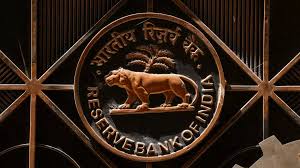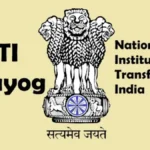RBI Penalizes Three Financial Institutions for Non-Compliance
The Reserve Bank of India (RBI) has imposed monetary penalties on Citibank N.A., Asirvad Micro Finance Ltd., and JM Financial Products Ltd. for failing to comply with regulatory guidelines. The central bank took action after identifying lapses in their operations, violating specific provisions of the Banking Regulation Act, 1949, and other financial guidelines.
Details of the Penalties and Non-Compliance Issues
Citibank N.A.
The RBI levied a fine of ₹1 crore on Citibank N.A. for failing to adhere to certain directives concerning loans and advances. The violations included non-compliance with RBI’s instructions on reporting requirements and internal control mechanisms.
Asirvad Micro Finance Ltd.
Asirvad Micro Finance Ltd., a subsidiary of Manappuram Finance Ltd., was fined ₹1.20 crore. The financial institution was found guilty of contravening the Fair Practices Code (FPC) and guidelines regarding the charging of interest rates on microfinance loans. RBI’s scrutiny revealed discrepancies in customer transparency and grievance redressal mechanisms.
JM Financial Products Ltd.
A penalty of ₹5 lakh was imposed on JM Financial Products Ltd. for breaching certain financial lending norms. The company failed to comply with RBI’s prudential norms on exposure limits, risk management practices, and proper due diligence in its lending processes.

Why This News is Important?
Ensuring Financial Stability
The RBI’s actions reinforce the importance of maintaining financial stability within the banking and non-banking financial institutions (NBFCs). Regulatory compliance ensures that customers and businesses are safeguarded against unethical banking practices.
Strict Enforcement of RBI Guidelines
By imposing these fines, the RBI sends a strong message that non-compliance with banking regulations will not be tolerated. Financial institutions must align their operations with the central bank’s directives to avoid penalties.
Consumer Protection and Transparency
The penalties also highlight the importance of consumer protection. Financial institutions are expected to maintain transparency in their lending practices, ensuring fair treatment of customers and adherence to interest rate policies.
Historical Context
Previous RBI Actions on Non-Compliance
The RBI has a history of taking strict action against financial institutions that fail to comply with regulatory norms. In the past, several banks, including HDFC Bank, ICICI Bank, and SBI, have been penalized for violations related to customer protection, risk assessment, and non-adherence to lending norms.
Evolving Banking Regulations
Over the years, the RBI has introduced stringent measures to ensure better governance in the financial sector. The Fair Practices Code (FPC) was introduced to protect consumer rights and maintain ethical banking standards.
Impact on NBFCs
The non-banking financial companies (NBFCs) sector has been under scrutiny, particularly after the IL&FS crisis in 2018. The RBI has tightened regulations to ensure that NBFCs maintain liquidity, transparency, and responsible lending.
Key Takeaways from RBI’s Penalties on Financial Institutions
| S.No | Key Takeaway |
|---|---|
| 1 | RBI imposed penalties on Citibank, Asirvad Micro Finance, and JM Financial for non-compliance. |
| 2 | Citibank N.A. was fined ₹1 crore for failing to follow loan-related regulations. |
| 3 | Asirvad Micro Finance Ltd. was fined ₹1.20 crore for violating the Fair Practices Code. |
| 4 | JM Financial Products Ltd. faced a ₹5 lakh penalty for breaching lending norms. |
| 5 | RBI’s action highlights the importance of regulatory compliance and consumer protection. |
Important FAQs for Students from this News
1. Why did RBI fine Citibank?
RBI fined Citibank ₹1 crore for failing to comply with regulations related to loans and advances.
2. What were the violations committed by Asirvad Micro Finance Ltd.?
Asirvad Micro Finance Ltd. violated the Fair Practices Code by not adhering to interest rate regulations and lacking customer transparency.
3. What is the penalty imposed on JM Financial Products Ltd.?
JM Financial Products Ltd. was fined ₹5 lakh for breaching financial lending norms.
4. How does RBI ensure regulatory compliance?
RBI monitors financial institutions through audits, inspections, and enforcement actions, ensuring they comply with banking regulations.
5. What impact does RBI’s action have on financial institutions?
RBI’s penalties act as a deterrent against regulatory violations, promoting financial discipline and consumer protection.
Some Important Current Affairs Links

















